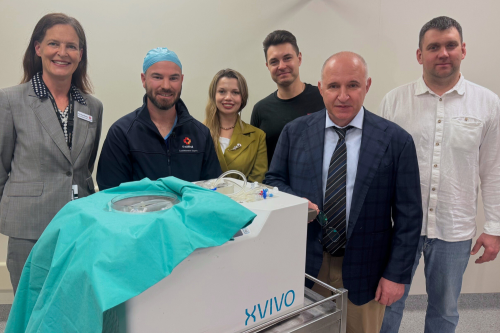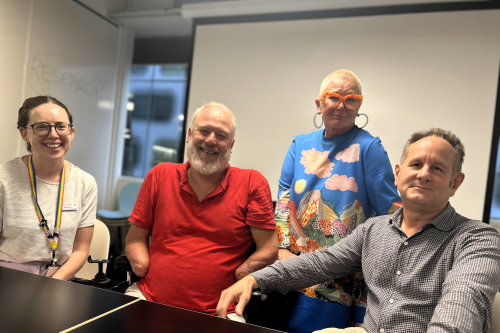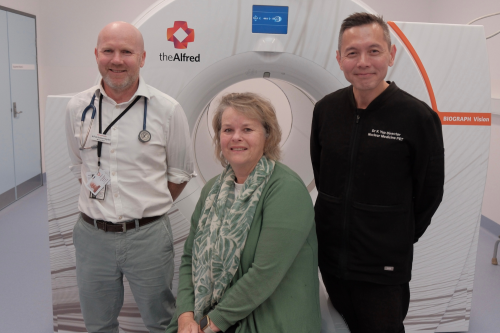‘Laughing gas’ to treat severe depression

Researchers at The Alfred have opened the door to new avenues of research into the treatment of depression, after a clinical trial that used laughing gas to treat patients with severe depression had “beneficial and persistent antidepressant effects” on symptoms.
Depression is considered ‘severe’ or ‘chronic’ when the symptoms are so intense that they impair a person’s quality of life, or when standard treatments do not work.
The trial, which was a collaboration between Multidisciplinary Alfred Psychiatry Research Centre Director, Prof Jayashri Kulkarni, and Director of Anaesthesiology and Perioperative Medicine at Alfred Health, Prof Paul Myles, has had its findings published in Biological Psychiatry Global Open Science.
“While nitrous oxide, or laughing gas, is commonly used for sedation and pain relief, it also targets a different brain pathway that conventional antidepressants otherwise pass through,” Prof Myles said.
“This difference presented us with completely new, yet-to-be-explored possibilities to alleviate symptoms for patients with treatment-resistant depression.”
In the trial, 81 participants for whom regular anti-depressant medications failed to adequately treat, attended supervised, one-hour treatment sessions over three weeks.
Prof Kulkarni said the results were "very promising”.
“There was near-immediate improvement in symptoms such as suicidal thinking, hopelessness and mood, which can be debilitating feelings associated with depression,” Prof Kulkarni said.
Prof Myles said the fast-acting nature of nitrous oxide observed in the trial indicated a potential to work in conjunction with other kinds of treatment.
“For people with severe depression, medication can take up to four weeks to work so this could be a great solution to bridge that gap and provide people with more immediate relief,” Prof Myles said.
“If we can demonstrate the widespread, practical value of this therapy, we expect clinics and emergency departments could provide this option anywhere in the world.”
However, both Prof Myles and Prof Kulkarni advised there is some way to go before routine use of nitrous oxide can be rolled out as a treatment option.
“As a 'kick start' to recovery from depression, the results are encouraging, but it needs replication in a bigger study,” Prof Kulkarni said.
“More research is required to work out things like side effects and their management, when to use it, the dosing regime and subtype of depression where it is effective."
“More research is always the answer. If nitrous oxide is truly effective, we need to know as soon as possible,” Professor Myles said.
Funding for the trial was supported by the Australia and New Zealand College of Anaesthetists and Faculty of Pain Medicine, in conjunction with Alfred Health.


